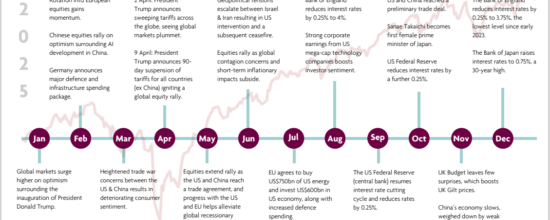Middle Eastern Conflict & Market Impact
We understand that the ongoing conflict in the Middle East and its potential impact on global markets can cause clients to feel uneasy. With this in mind, we have prepared this update to help you navigate your discussions with clients.
When tensions flare up in the Middle East, the primary concern for markets is how much the oil price will rise and how long will it be sustained. This is because it impacts the wider economy through supply chains but also, potentially, monetary policy because of inflationary passthrough.
We have seen many such flare-ups in the past and will again in the future, no doubt.

If you believe the textbooks, central bankers should look through short-term increases in inflation when they are due to supply shocks. In this particular case, having incorrectly characterised the most recent increase in inflation as “transitory”, central bankers will be loathe to repeat the same mistake again, particularly with economic activity being ”OK” right now.
The US Federal Reserve was playing for time anyway, with uncertainty elevated due to tariff policy. The Bank of England will likely be more focused on the domestic labour market, given recent data prints, and only gradual cuts are expected from the Monetary Policy Committee at this juncture anyway. Perhaps where it might matter more is for the European Central Bank, where the latest decision to lower interest rates was more finely balanced.
The key concern for markets revolves around the potential for Iran to attempt to blockade the Strait of Hormuz, which sees about 15% of global oil consumption and 30% of global gas consumption pass through it. This would almost certainly lead to a more sustained increase in the oil price.
This is unlikely to happen in our view (but is certainly a tail risk) because Iran would risk dragging the US into the conflict, which may actually be a risk to the domestic regime and appears to be deeply unpopular.
We haven’t made any portfolio changes at this stage, but will continue to monitor events.


